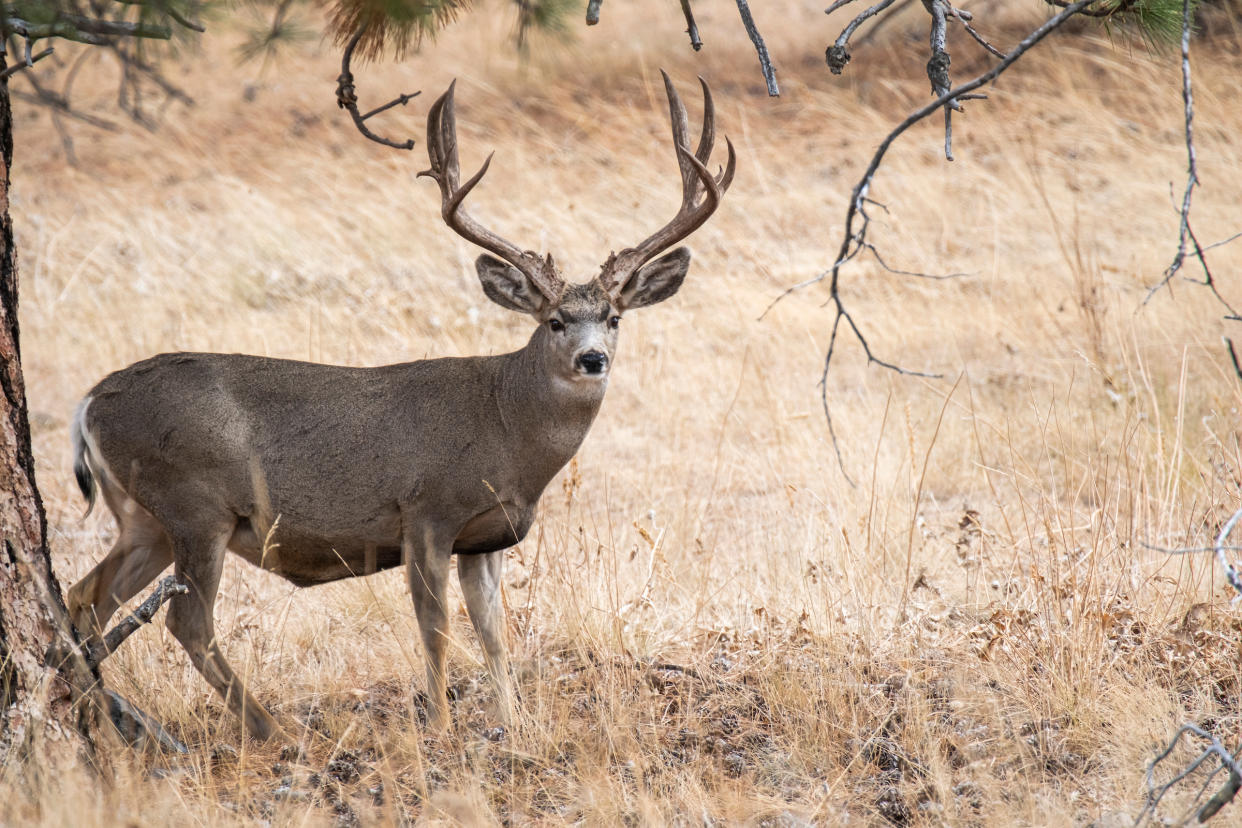Montana Raises Record Funds for a Coveted Mule Deer Tag — Through a Public Raffle

Montana’s chapter of Backcountry Hunters & Anglers today announced that it raised a record $56,620 for mule deer conservation by raffling a single statewide deer tag. The winner is a Washington State hunter who bought five chances at $20 apiece. The total raised in the two-month campaign, which was heavily promoted on BHA’s content channels, is 38 percent higher than the previous record of $41,000 raised at auction for Montana’s statewide mule deer tag. The fundraising mechanism is an important point of divergence here. Montana is one of many Western states whose wildlife commissions donate highly coveted statewide big-game hunting tags to conservation groups to sell. Money from the transaction is plowed back into habitat and management efforts to benefit the respective species. Traditionally, these tags have been auctioned to the highest bidders, but the idea that opportunities to pursue public wildlife are being sold to wealthy hunters and highest bidders conflicts with an expectation that wildlife is available to all. That’s one of the seven pillars of what’s come to be called the North American Model of Wildlife Conservation. It means “that every citizen has the freedom to view, hunt and fish, regardless of social or economic status,” according to the Boone and Crockett Club’s explanation. Reconsidering Tag Auctions The auction-tag model is under consideration in a number of states. In March, shortly after the Western Hunting & Conservation Expo, where most Western big-game tags are auctioned, Arizona’s Game and Fish Commission voted to abolish the state’s practice of auctioning big-game tags by 2026 as it considers “more equable systems” for raising funds important to trophy-species management. But some who testified in favor of keeping auction tags, and the eye-popping revenue they raise for the most desirable hunts, noted the trickle-down effect of allowing a single wealthy hunter to fund species-specific management. The Arizona Desert Bighorn Sheep Society stressed that of the $9.6 million raised for wild sheep conservation in Arizona over the past 20 years, $6.8 million was generated through auctions, compared to $2.8 million raised through raffles. Funds from both sources are used to fund wildlife management and habitat projects that often create additional hunting opportunities that are democratically distributed in the state’s big-game draw. “The fact that a handful of individuals stepped up to put and keep more wild sheep on the mountain for everyone, and one day put more sheep permits into the public draws, is the definition of paying it forward,” says Gray Thornton, president and CEO of the Wild Sheep Foundation, which set an auction-tag record for conservation permits at its convention in January. “That’s the backbone of conservation.” Montana’s statewide bighorn sheep license, it should be noted, sold at auction to the highest bidder at the Wild Sheep Foundation’s January “Sheep Show” for $380,000. That tag has raised $8.7 million for bighorn sheep management in Montana since 1986. A Gamble in Montana As it requested permission to raffle the Montana statewide mule deer tag, which allows the recipient to hunt in any unit in the state in archery, rifle, and muzzleloader seasons, BHA’s regional policy manager Kevin Farron told Montana’s Fish and Wildlife Commission that “the opportunity to hunt shouldn’t just be for the wealthy.” The commission awarded BHA rights to broker the tag through a raffle. It’s the first time that a Montana conservation group has hosted an open raffle for a trophy tag, which are also offered for bighorn sheep, mountain goat, moose, and elk. The tag was drawn last week (full disclosure: BHA asked me to assist in the drawing) and the ticket number corresponding to a hunter known only as Matt E. from Washington State was drawn. In all, 1,317 individuals bought $20 raffle tickets, according to BHA’s Farron. A total of 2,831 tickets were sold, and the average buyer bought two tickets. Nearly 12 percent of ticket buyers were Montana residents. Over 60 percent of participants bought just one ticket; 76 percent bought two or fewer. Read Next: Auction vs. Raffle Tags: Should States Stop Selling Big-Game Tags to the Highest Bidder? “We think that distribution is important,” said Farron. “There was a risk that a single buyer could come in and buy a huge number of tickets to swamp the pool, but that didn’t happen, which I think helps make the case that chances were equitably distributed. In fact, many participants told us that they had no illusions of drawing the tag but simply wanted to support this more equitable model for special tags. “The raffle, unlike an auction, wasn’t driven by high rollers,” continued Farron. “Average, blue-collar hunters had a realistic shot.” The statewide hunting tag wasn’t the only prize on offer in the raffle. Matt E. will also receive $3,600 worth of gear donated by Mystery Ranch, Weatherby, and First Lite — BHA corporate partners who “support this equitable approach,” says Farron.

